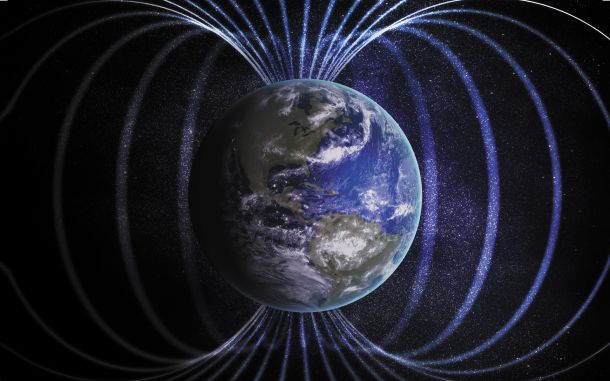Science Square (Issue 161)

Predicting major earthquakes months ago
Girona et al. Abnormal low-magnitude seismicity preceding large-magnitude earthquakes. Nature Communications, August 2024.
Recent study suggests that significant earthquakes could be predicted days or months in advance by detecting low-level tectonic activity using machine learning. The researchers closely investigated two major earthquakes: the 2018 Anchorage earthquake and the 2019 Ridgecrest earthquake sequence in California. Their method involved analyzing seismic data for abnormal low-magnitude activity, particularly in the months leading up to these events. They discovered that in both earthquakes, there were about 3 months of unusual seismicity, predominantly of magnitudes below 1.5, over 15% to 25% of the affected regions. Specifically, their machine learning algorithm revealed an 80% probability of a major earthquake occurring within 30 days, increasing to 85% just days before the Anchorage quake. Similar patterns were also observed before the Ridgecrest sequence.
The researchers propose that this precursor activity is caused by increased pore fluid pressure within faults, altering their mechanical properties and leading to uneven stress distribution. This study highlights the transformative role of machine learning in analyzing large seismic datasets, allowing researchers to identify patterns that might signal impending earthquakes. However, while their method shows promise, it requires further testing in real-time scenarios and should be adapted to the specific seismic history of different regions. The ethical challenges of earthquake forecasting are significant, as false alarms could lead to widespread panic and economic disruption, while missed predictions could result in catastrophic outcomes. Nonetheless, accurate forecasting holds the potential to save lives and reduce economic losses by enabling timely warnings and preparations.
Environmental and social factors impact brain aging
Moguilner et al. Brain clocks capture diversity and disparities in aging and dementia across geographically diverse populations. Nature Medicine, August 2024.
A new study reveals that brain aging varies significantly depending on social and environmental factors, particularly in older adults and those with dementia. Countries with higher inequalities, whether economic, environmental, or related to disease, tend to have populations with older brain ages. Researchers used advanced brain clocks based on deep learning to measure brain aging across a diverse sample of 5,306 participants from 15 countries. The study utilized functional magnetic resonance imaging (fMRI) and electroencephalography (EEG) data to quantify the brain age gaps, which is the difference between the estimated biological brain age and the chronological age. The study found that individuals with dementia, especially Alzheimer's disease, exhibited the most significant brain age gaps. Women in Latin American and Caribbean (LAC) countries showed larger brain age gaps, particularly those with Alzheimer's, due to a combination of biological sex and gender disparities in health and social conditions. These findings emphasize the role of environmental and social factors in brain health disparities. The research underscores the importance of considering the interaction between large-scale environmental factors (exposome) and brain aging mechanisms. This new framework for brain health research could be critical for personalized medicine, helping to identify individuals at risk for neurodegenerative diseases and develop targeted interventions. Additionally, the study highlights the need for public health policies to address socioeconomic inequalities and environmental pollution to promote healthier brain aging across populations.
Meat consumption linked to higher type 2 diabetes risk
Chunxiao Li et al. Meat consumption and incident type 2 diabetes: an individual-participant federated meta-analysis of 1.97 million adults with 100,000 incident cases from 31 cohorts in 20 countries. The Lancet Diabetes & Endocrinology, September 2024.
Global meat consumption has surged in recent decades, often exceeding dietary guidelines, leading to concerns about its impact on health, particularly the risk of type 2 diabetes. Previous research has suggested a link between higher intakes of processed and unprocessed red meat and an increased risk of type 2 diabetes, but results have been inconsistent. To clarify this relationship, researchers utilized data from the global InterConnect project, analyzing 31 study cohorts across 20 countries. They considered various factors, including age, gender, lifestyle behaviors, energy intake, and body mass index. The study found that consuming 50 grams of processed meat daily, equivalent to two slices of ham, is associated with a 15% higher risk of developing type 2 diabetes within the next decade. Similarly, consuming 100 grams of unprocessed red meat, such as a small steak, was linked to a 10% increased risk. While habitual consumption of 100 grams of poultry daily was associated with an 8% higher risk, this association weakened under further analysis, whereas the links with processed and unprocessed red meat remained strong. This is the most comprehensive evidence to date supporting the recommendation to limit processed and unprocessed red meat consumption to reduce type 2 diabetes risk. Although the study also examined poultry consumption, the link to type 2 diabetes remains uncertain and requires further investigation. The study's innovative use of harmonized data across diverse populations enabled a more accurate assessment of the relationship between meat consumption and diabetes, reducing potential biases. This research highlights the need for further investment in studies across under-represented regions.












